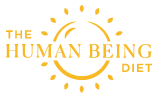The crossover between sugar and alcohol addiction is real – both share the same pleasure and reward circuitry in the brain by raising dopamine levels. How to identify an addiction?
The Yale Food Addiction Scale was developed to assesses 11 symptom criteria including ‘diminished control over intake, cravings, withdrawal, and continued use despite negative consequences.’
We’ve come a long way – addiction, and disordered eating, once dismissed as a lack of willpower and self-control, is now treated with more compassion. Dr Gabor Mate recognises addictions as emotional anaesthetics. He writes: ‘Not why the addiction but why the pain?’ ‘It is always pain that underlies addiction and it is always pain, conscious or not, that the addiction is meant to help a person escape’. https://drgabormate.com/dr-gabor-mates-critique-surgeon-generals-report-facing-addiction-america/
A vast meta-analysis, published in the British Medical Journal in 2023, of 281 studies across 36 countries found that 14% of people worldwide meet the criteria for food addiction. 14% are addicted to carbs, sugar, ultra processed food. That’s exactly the same prevalence of alcohol addiction, and a similar prevalence, 18%, for tobacco/nicotine addiction. https://pmc.ncbi.nlm.nih.gov/articles/PMC10561019/ Pain is widespread and may be characterised by not only food addiction but also by shopping, gambling, drug and sex addictions.
Sugar addiction might seem innocent, and it’s certainly socially more acceptable than
alcohol addiction, but both substances in excess are poisonous to the liver, heart, brain, and pancreas. Both fuel insulin resistance, weight gain, inflammation and the risk of Type 2 diabetes, and both contribute to fatty liver disease. Sugar is not just a source of empty calories; it drives cravings and long-term health issues. It also depletes us of essential nutrients including B vitamins, chromium, zinc and magnesium when it’s broken down in our bodies.
David Wilson (aka @soberdave on Instagram) shared his moving story of overcoming addiction in the Telegraph – first to alcohol and then to sugar. Dave describes his work as a ‘trauma informed alcohol recovery specialist’ on his website https://www.soberdave.co.uk and he is the author and podcast host of One for the Road. He’d expected to lose weight when he stopped drinking and couldn’t understand why his weight had ballooned instead. It wasn’t until he started The Human Being Diet (HBD) that he realised (as happens to many of us) he’d unwittingly swapped alcohol for sugar and he was able to achieve his perfect weight.
Sugar comes in many guises. Foods such as bread, biscuits and potato are made up of long chains of sugar which are broken down in our bodies to quickly raise our blood sugar and insulin.
HBD, with its emphasis on nutrient dense, minimally processed foods, reestablishes healthy insulin levels and blood sugar control. We are freed of cravings and the seesaw of energy and blood sugar peaks and troughs.
The rules are clear: 3 meals a day (always combining one protein food, e.g. fish, eggs, chicken or tofu, with a mixture of vegetables) and a 5 hour fast, with water only, between meals.
Eating in this way results in stable blood sugar and consistently good energy. At the same time cravings are diminished, our mood is improved and we’re no longer hungry. As you’ll discover with HBD there are hacks to minimise sugar/carb/ alcohol detox and withdrawal symptoms, which can include low mood, anxiety, brain fog, light-headedness and cravings:
1. Add apple cider vinegar to water to drink with meals (it also helps with blood sugar balance, fat-burning and sugar/alcohol cravings)
2. Drink ½ a litre of water first thing and at least another 1.5l before lunch – add unsweetened & unflavoured electrolyte drops, e.g. Viridian Sports
3. Add extra sea salt to meals and put a pinch on your tongue between meals if feeling weak or light-headed
4. Epsom salt baths before bed – add a pound to a hot bath, soak for at least 10 minutes, dry off and get straight into bed for deeper, more refreshing sleep
5. Prioritise rest and sleep – your body is working hard on the detox and it’s when we’re asleep that our immune system is in repairing and fat-burning mode.
Many new HBDers who are dealing with sugar or alcohol addiction are understandably scared of failure when they first start – they doubt their resilience and their willpower.
But scores of happy people share that for the first time in their life they feel in control, they feel liberated and they’re enjoying their food again. Dave wanted to share his story in the Telegraph to inspire other men to embrace the HBD way of eating and to prove that HBD works just as well for guys – it’s not just for the girls! He also offers classes and one to one coaching for everyone who is struggling with addiction with his trademark gentleness and compassion.
You can read Dave's story in full by clicking here!
The Human Being Diet second edition, indispensable reading, is available on Amazon and at www.thehumanbeingdiet.com and The HBD Cookbook – a great accompaniment to the original book – is on Amazon.


